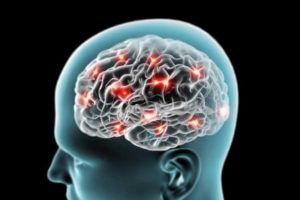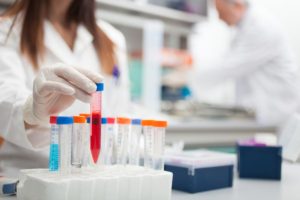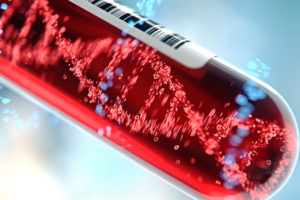Bay Biosciences provides high quality, clinical grade bio-samples, biopsy tissue samples, FFPE tissue blocks, sera (serum), plasma and peripheral blood mononuclear cells (PBMC) biofluid specimens from patients diagnosed with Parkinson’s Disease (PD). The PBMC, sera (serum) and plasma samples are processed from patient’s peripheral whole-blood using customized processing protocols.
The sera (serum), plasma and PBMC biofluid specimens are processed from Parkinson’s disease (PD) patient’s peripheral whole-blood using customized collection and processing protocols. The Parkinson’s disease (PD) tissue and matched biofluid samples are collected from unique patients diagnosed with Parkinson’s disease (PD). Samples and are provided to a valued pharmaceutical customer for research, diagnostics, discovery and drug development.
Detailed clinical data, Parkinson’s disease (PD) patient’s history, symptoms, complete blood count (CBC), serology, MRI, biopsy tissue, histopathology information, elevated biomarker levels, genetic and metabolic information. The Parkinson’s disease (PD) specimens are provided to a valued customer for research, development and drug discovery.
The Parkinson’s disease (PD) sera (serum), plasma and peripheral blood mononuclear cells (PBMC) biofluids are processed from patients peripheral whole-blood using customized collection and processing. protocols.
Parkinson’s Disease Overview
Parkinson’s disease (PD) is a neurodegenerative disorder that affects predominately dopamine-producing (dopaminergic) neurons in a specific area of the brain called substantia nigra. Parkinson’s disease is a long-term degenerative disorder of the central nervous system (CNS) that mainly affects the motor functions of the human body.
The symptoms usually emerge slowly and, as the disease worsens, non-motor symptoms become more common. The most obvious early symptoms are tremors, rigidity, slowness of movement and difficulty with walking but cognitive and behavioral problems may also occur. In the early stages of Parkinson’s disease, patient’s show little or no expression. Patients arms may not swing when they walk, the speech may become soft or slurred. Parkinson’s disease symptoms worsen as patients condition progresses over time.

Parkinson’s disease dementia becomes common in the advanced stages of the disease. Depression and anxiety are also common, occurring in most patients suffering from Parkinson’s disease. Other symptoms include sensory, sleep, and emotional problems. The main motor symptoms are collectively called “parkinsonism”, or a “parkinsonian” syndrome.
Signs and Symptoms of Parkinson’s Disease
Parkinson’s disease signs and symptoms are different for every patient. Early signs may be mild and go unnoticed. Symptoms often begin on one side of the body and usually remain worse on that side, even after symptoms begin to affect both sides.
Parkinson’s signs and symptoms may include:
- Tremor- A tremor, or shaking, usually begins in a limb, often patients hand hand or fingers. Parkinson’s patients may rub their thumb and forefinger back and forth, known as a pill-rolling tremor. The hand may tremble when it is at rest.
- Slowed movement (bradykinesia)- Over time, Parkinson’s disease may slow the patients movement, making simple tasks difficult and time-consuming. The steps may become shorter during walk. It may become difficult to get out of a chair and patients may drag their feet as they try to walk.
- Rigid muscles- Muscle stiffness may occur in any part of the body. The stiff muscles can be painful and limit the range of motion.
- Impaired posture and balance- Parkinson’s patients posture may become stooped (gait problems), or they may develop balance problems.
- Loss of automatic movements- Parkinson’s patients may have a decreased ability to perform unconscious movements, including blinking, smiling or swinging their arms during walking.
- Speech changes- As a result of Parkinson’s disease patients may speak softly, quickly, slur or hesitate before talking. The speech may be more of a monotone rather than have the usual infections.
- Writing changes- It may become hard to write, and the writing may appear small.
Causes of Parkinson’s Disease
In Parkinson’s disease, certain nerve cells (neurons) in the brain gradually break down or die. Many of the symptoms are due to a loss of neurons that produce a chemical messenger in the brain called dopamine.
Dopamine is a chemical produced by the brain that plays a key role in motivating behavior. Dopamine gets released when we eat delicious food, when we have sex, after we exercise, and when we have successful social interactions. It rewards us for beneficial behaviors and motivates us to repeat those behaviors.
When dopamine levels decrease, it causes abnormal brain activity, leading to impaired movement and other symptoms of Parkinson’s disease. The cause of Parkinson’s disease is not known, but several factors play a role, which include:
- Genes: Researchers have identified specific genetic mutations that can cause Parkinson’s disease. But these are not too common except in rare cases with many family members affected by Parkinson’s disease. However, certain gene variations appear to increase the risk of Parkinson’s disease but with a relatively small risk of Parkinson’s disease for each of these genetic markers.
- Environmental triggers: Exposure to certain toxins or environmental factors may increase the risk of developing Parkinson’s disease later in life. Environmental factors include pesticides, air pollution, tobacco, tea, coffee and some drugs e.g. statins, calcium channel blockers.
Researchers have also noted that many changes occur in the brains of patients with Parkinson’s disease, although it’s not clear why these changes occur. These changes include:
- The presence of Lewy bodies: Clumps of specific substances within brain cells are microscopic markers of Parkinson’s disease. These are called Lewy bodies, and researchers believe these Lewy bodies hold an important clue to the cause of Parkinson’s disease.
- Alpha-synuclein found within Lewy bodies Lewy bodies: Although many substances are found within Lewy bodies, scientists believe an important one is the natural and widespread protein called Alpha-synuclein (a-synuclein). It is found in all Lewy bodies in a form that cells can’t break down.

Complications of Parkinson’s Disease
Parkinson’s disease is often accompanied by the following additional health problems, which may be treatable:
- Thinking difficulties: Parkinson’s disease patients may experience cognitive problems (dementia) and thinking difficulties. These usually occur in the later stages of Parkinson’s disease. Such cognitive problems aren’t very responsive to medications.
- Depression and emotional changes: Parkinson’s disease patients may experience depression, sometimes in the very early stages. Receiving treatment for depression can make it easier to handle the other challenges of Parkinson’s disease. Parkinson’s disease patients may also experience other emotional changes, such as fear, anxiety or loss of motivation.
- Swallowing problems: Parkinson’s disease patients may develop difficulties with swallowing as their condition progresses. Saliva may accumulate in the mouth due to slowed swallowing, leading to drooling.
- Chewing and eating problems: Late-stage Parkinson’s disease affects the muscles in your mouth, making chewing difficult. This can lead to choking and poor nutrition.
- Sleep problems and sleep disorders: Patients with Parkinson’s disease often have sleep problems, including waking up frequently throughout the night, waking up early or falling asleep during the day. Parkinson’s disease patients may also experience rapid eye movement sleep behavior disorder.
- Bladder problems: Parkinson’s disease may cause bladder problems, including being unable to control urine or having difficulty urinating.
- Constipation: Many patients with Parkinson’s disease develop constipation, mainly due to a slower digestive tract movement.
Parkinson’s patients may also experience the following additional problems:
- Blood pressure changes: Parkinson’s disease patients may feel dizziness or lightheaded when they stand due to a sudden drop in blood pressure (orthostatic hypotension).
- Smell dysfunction: Parkinson’s disease patients may experience problems with their sense of smell. It may become difficult identifying certain odors or the difference between odors.
- Fatigue: Many people with Parkinson’s disease lose energy and experience fatigue, especially later in the day., the cause is unknown.
- Pain: Some people with Parkinson’s disease experience pain, either in specific areas of their bodies or throughout their bodies.
- Sexual dysfunction- Some people with Parkinson’s disease notice a decrease in sexual desire or performance.

Bay Biosciences is a global leader in providing researchers with high quality, clinical grade, fully characterized human tissue samples, bio-specimens and human bio-fluids. Our sample collections include cancer (tumor) tissue, cancer sera (serum), cancer plasma, cancer PBMC and human tissue samples from most other therapeutic areas and diseases.
Bay Biosciences maintains and manages it’s own bio-repository, human tissue bank (biobank) consisting of thousands of diseased samples (specimens) and from normal healthy donors. Samples available in all formats and types. Our biobank procures and stores fully consented, deidentified and institutional review boards (IRB) approved human tissue samples and matched controls.
All our human human tissue collections, human specimens and human bio-fluids are provided with detailed samples associated patient’s clinical data. This critical patient’s clinical data includes information relating to their past and current disease, treatment history, lifestyle choices, biomarkers and genetic information. Patient’s data is extremely valuable for researchers and is used to help identify new effective treatments (drug discovery & development). We specialize in oncology and other therapeutic areas and diseases. This clinical information is critical to demonstrate their impact, monitor the safety of medicines, testing & diagnostics, and generate new knowledge about the causes of disease and illness.
Bay Biosciences banks wide variety of human tissue samples and biological samples including cryogenically preserved -80°C, fresh fresh frozen tissue samples, tumor tissue samples, FFPE’s, tissue and slides. Samples include matching human bio-fluids, whole blood and blood derived products such as serum, plasma and PBMC’s.
Bay Biosciences is a global leader in collecting and providing human tissue samples according to the researchers specified requirements and customized, tailor made collection protocols. Please contact us anytime to discuss your special research projects and customized human tissue sample requirements.
Bay Biosciences provides human tissue samples (human specimens) from diseased and normal healthy donors. Which includes peripheral whole-blood, amniotic fluid, bronchoalveolar lavage fluid (BAL), sputum, pleural effusion, cerebrospinal fluid (CSF), serum (sera), plasma, peripheral blood mononuclear cells (PBMC’s). In addition we can provide saliva, Buffy coat, urine, stool samples, aqueous humor, vitreous humor, kidney stones, renal calculi, nephrolithiasis, urolithiasis and other bodily fluids from most diseases including cancer. We can also procure most human bio-specimens and can do special collections and requests of human samples that are difficult to find. All our human tissue samples are procured through IRB approved clinical protocols and procedures.
In addition to the standard processing protocols Bay Biosciences can also provide human plasma, serum, PBMC bio-fluid samples using custom processing protocols. Donor specific sample collections in higher volumes and specified sample aliquoting can also be ordered. Bay Biosciences also provides human samples from normal healthy donors, volunteers, for controls and clinical research, contact us Now.
日本のお客様は、ベイバイオサイエンスジャパンBay Biosciences Japanまたはhttp://baybiosciences-jp.com/contact/までご連絡ください。
